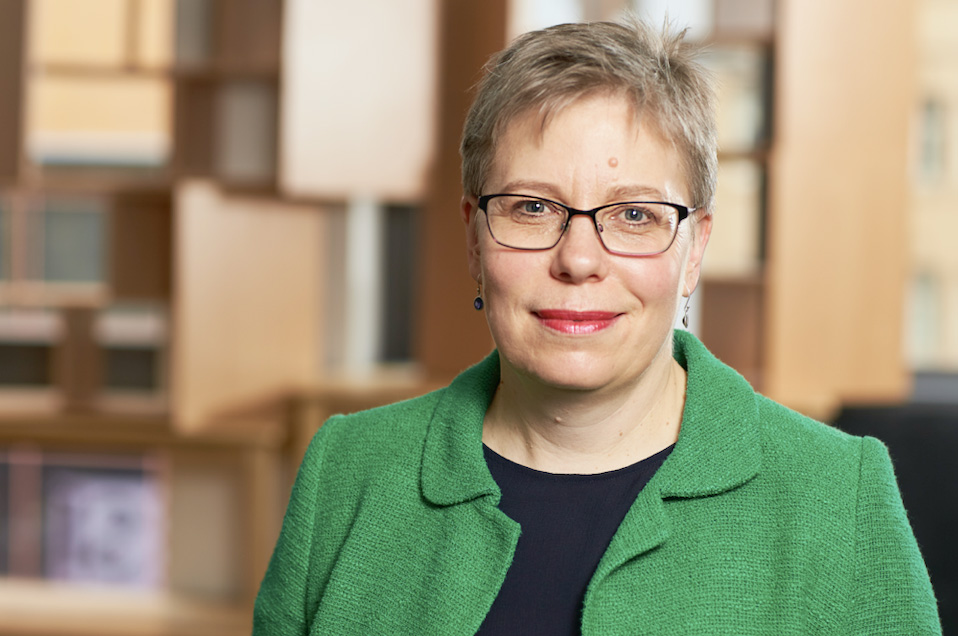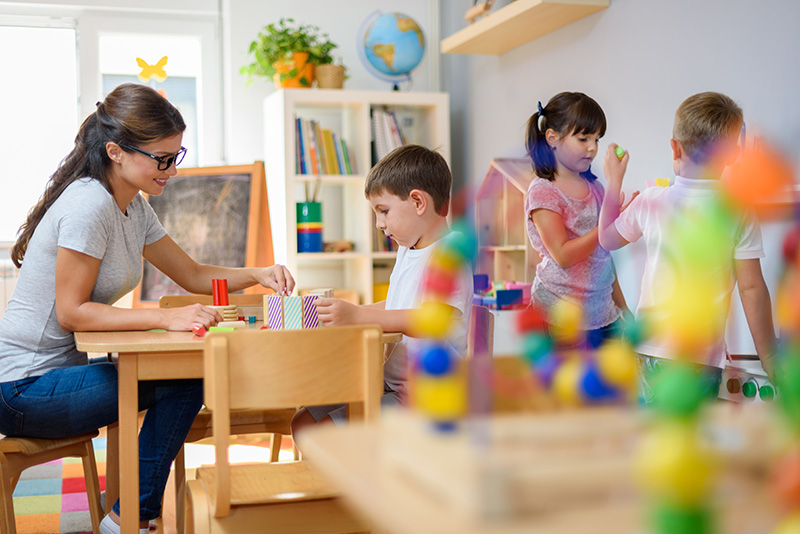A message on important lessons about early childhood education from our CEO, Jane Hunt.
A message on important lessons about early childhood education from our CEO, Jane Hunt.
On behalf of the Board and team at The Front Project, I hope this finds you well and safe.
Like many organisations, The Front Project moved to working from home several weeks ago to adapt to the implications of tackling COVID-19. We are all seeing our home and work worlds intersect and merge in a way that we haven’t before, and I have been struck by how many times children have made appearances in video calls with our various partners across Australia.
A colleague of mine who works for a major bank told me that he hadn’t realised how hungry his children are for opportunities to learn through play, and how quickly things can descend into chaos on a zoom call if he doesn’t also attend to the dynamics between his children! Never before has he been so appreciative of the skilled educators at his children’s early learning center.
The early childhood education sector has been in the news recently as there was, and may continue to be, a significant threat to the viability of the sector. The early childhood education sector generates revenue of $14.2 billion and profit of $1.4 billion annually. Prior to COVID-19 it was also a growth sector, and The Front Project’s research has demonstrated that every dollar invested in early childhood education returns two dollars to the economy.
Early learning is offered through a mixed market in Australia, with many different settings including local community-run kindergartens, long day care centres (childcare) and pre-schools that are attached to primary schools.
The strength of this diversity is the range of choices for families, but its weakness is the inconsistent, unstable and complicated funding across the sector. This weakness has threatened to erode the entire early childhood education sector in Australia.
The majority of centres only receive funding when children attend. If children no longer attend because parents can no longer afford to pay, then the centre doesn’t receive any funding. This has significant ramifications for a sector that educates and cares for over 845,000 children. In contrast, if a child attends a school-based preschool, they will miss out on learning opportunities with the closure of schools. However because school funding is ongoing and not based on student attendance, the preschool centre isn’t at risk of not being viable and its early childhood teachers won’t be at risk of losing their jobs.
Last week, the Federal Government acknowledged that the current funding structure was not serving children and the community in this crisis. They announced that the current arrangements will be temporarily suspended, and families will be able to access stable education and care for their children at no cost during this time of heightened instability. When announcing this change, the Prime Minister reiterated the importance of early childhood education, noting that it is, and always will be, critical to our economy.
The early learning sector is now working through how this temporary funding arrangement will work; and how the Job Keeper and childcare payments will interact. The next few weeks will reveal if this is enough for the sector to remain viable throughout this pandemic. If it isn’t, there will be significant implications for children and their families, teachers and educators and the Australian economy.
It strikes me that after just a few weeks, there are already many lessons to be learnt as a result of the impact of COVID-19. Three immediately come to mind:
- The critical importance of ‘essential’ workers in professions that may not have previously been valued , such as early childhood education and care. The skill of educators and teachers is especially needed at this time. They are focused on continuing to provide stable relationships and deliver familiar activities to children that both support development and mitigate some of the disruption and stress that children are facing.
- The lack of stable funding in early childhood education compared with other parts of the education system.
- The difficulty in continuing to only consider early learning as important because it enables the ‘care’ of children while parents work. This misses how critical early childhood education is to child development. A disruption in a child’s education and development at a peak time of brain, social and emotional and cognitive development can have significant ramifications in preparing a child for school and further learning. It’s important to keep in mind that early learning delivers a double dividend: it enables parents to work and it provides critical education to our youngest learners. Children need to be a central consideration in funding and policy decisions.
This period of time presents an opportunity for us to develop new policy, funding and ways of valuing the contribution of the early childhood education and care sector. At the Front Project we have been assisting the sector through this challenging time by informing, amplifying and advocating for stable funding during this period of crisis.
Our focus remains on both supporting the sector now, and in the future when we will need to contribute to its rebuild. We will emerge from COVID-19 with a greater sense of what is possible through supporting the education and care of all children.
Read our public commentary on supporting early childhood education through COVID-19



